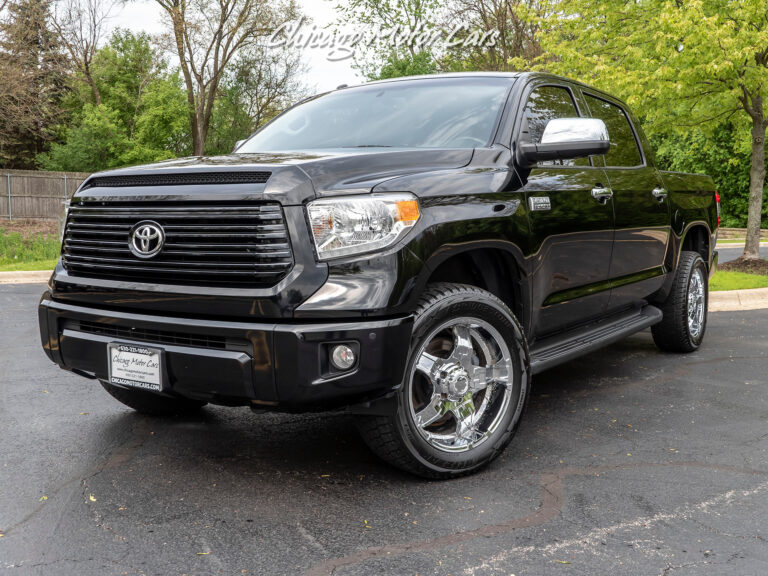Semi Truck Generators For Sale
“Semi Truck Generators For Sale: Your Comprehensive Guide to Powering the Open Road Typestruckssale.com
The life of a semi-truck driver is one of constant motion, long hours, and the ever-present need for reliable power. Whether it’s to keep the cab comfortable during mandated rest periods, run essential electronics, or power specialized equipment, a consistent energy source is not just a luxury but a necessity. This is where semi-truck generators, often referred to as Auxiliary Power Units (APUs), come into play. They are the silent workhorses that ensure truckers can maintain comfort, compliance, and productivity without idling their main engine.
Introduction Semi Truck Generators For Sale: Your Comprehensive Guide to Powering the Open Road
This comprehensive guide delves deep into the world of semi-truck generators. We’ll explore their types, the myriad benefits they offer, crucial considerations when purchasing, where to find them for sale, and essential maintenance tips. Our goal is to equip you with the knowledge needed to make an informed decision, ensuring you choose the right power solution for your journey on the open road.
Understanding Semi Truck Generators (APUs and Beyond)
At its core, a semi-truck generator is a dedicated power unit designed to provide electricity and climate control to the truck’s cab and other systems without running the main engine. While the term "generator" might bring to mind large, standalone industrial units, in the trucking world, we primarily refer to Auxiliary Power Units (APUs).
APUs are compact, integrated systems that typically mount on the truck frame, providing capabilities such as:
- Heating and Air Conditioning (HVAC): Maintaining a comfortable cab temperature regardless of external conditions.
- Electrical Power: Supplying 120V AC outlets for microwaves, refrigerators, laptops, TVs, and other personal electronics.
- Battery Charging: Keeping the truck’s primary batteries topped up.
Why are they essential? The primary driver for APU adoption is the significant reduction in engine idling. Idling a heavy-duty truck engine consumes a substantial amount of fuel, contributes to engine wear, and generates harmful emissions. APUs offer an efficient and environmentally friendly alternative.
Beyond APUs, some specialized trucking operations might utilize larger, more traditional generators (often diesel-powered) for specific high-power needs, such as mobile workshops, refrigeration units (separate from a reefer’s integrated unit), or backup power for critical loads. However, for general cab comfort and auxiliary power, APUs are the standard.
Types of APUs:
-
Diesel APUs: These are the most common type. They have a small diesel engine that runs on the truck’s fuel supply, powering an alternator for electricity and a compressor for HVAC.
- Pros: Reliable, long run times, robust power output, uses existing fuel source.
- Cons: Produce emissions, some noise, require regular maintenance (oil changes, filters).
-
Electric (Battery-Based) APUs: These systems rely on a bank of dedicated batteries to power an inverter for AC electricity and an electric compressor for HVAC. They are recharged by the truck’s alternator while driving or via shore power when parked.
- Pros: Zero emissions while operating, virtually silent, low maintenance.
- Cons: Limited run time (typically 8-12 hours on batteries alone), require regular recharging, potentially higher initial cost.
-
Hybrid APUs: These combine elements of both diesel and electric systems. They might use a small diesel engine to charge batteries, which then power the electrical and HVAC systems. Some can also run directly from the diesel engine for higher loads.
- Pros: Offers the best of both worlds – quiet electric operation for short periods, and diesel for extended use or charging.
- Cons: Generally the most expensive, more complex system.
Key Benefits of Investing in a Semi Truck Generator
The decision to purchase a semi-truck generator is an investment that yields significant returns for both owner-operators and fleet managers.
- Fuel Efficiency & Cost Savings: This is arguably the biggest benefit. An APU typically consumes a fraction of the fuel (around 0.2-0.3 gallons per hour) compared to idling a truck’s main engine (which can burn 0.8-1.5 gallons per hour). Over thousands of hours of rest time, this translates to substantial fuel savings annually, often paying for the APU itself within a few years.
- Reduced Engine Wear & Maintenance: Idling a large diesel engine for extended periods contributes to carbon buildup, reduces engine life, and increases the frequency of maintenance events like oil changes and filter replacements. An APU significantly reduces the wear and tear on the primary engine, extending its lifespan and lowering maintenance costs.
- Enhanced Driver Comfort: A comfortable driver is a productive and safer driver. APUs provide consistent heating and air conditioning, allowing drivers to sleep soundly in any weather. This also enables the use of microwaves, mini-fridges, and other amenities, improving the quality of life on the road.
- Environmental Compliance: Many states and municipalities have strict anti-idling laws to reduce air pollution. APUs allow truckers to comply with these regulations while still maintaining comfortable cab temperatures, avoiding hefty fines.
- Reliable Power for Electronics & Reefer Units: Beyond basic comfort, APUs provide stable 12V DC and 120V AC power for charging phones, laptops, running ELDs (Electronic Logging Devices), and even supporting specialized equipment or acting as a backup for refrigeration units.
- Increased Truck Resale Value: A well-maintained truck equipped with a functional APU is often more attractive to potential buyers, commanding a higher resale value due to the added utility and cost-saving potential.
What to Consider When Looking for Semi Truck Generators For Sale
Purchasing an APU is a significant decision. To ensure you select the best unit for your needs, consider the following factors:
- Power Output (kW/kVA): Determine your power requirements. Are you just running an HVAC and charging a phone, or do you need to power a microwave, a coffee maker, and other high-draw appliances simultaneously? APUs typically range from 5kW to 10kW. Match the output to your expected load.
- Fuel Type: As discussed, choose between diesel, electric, or hybrid based on your priorities for emissions, noise, run time, and initial cost. Diesel offers unlimited run time (as long as fuel is available), while electric is quiet but limited by battery capacity.
- Noise Levels: While all APUs are quieter than an idling main engine, some are significantly quieter than others. If you prioritize a peaceful rest, look for models known for low noise operation, especially electric ones.
- Size & Weight: APUs mount on the truck frame and can add several hundred pounds. Consider the available mounting space on your truck and how the added weight might impact your payload capacity, especially if you’re close to gross vehicle weight limits.
- Installation Requirements: While some mechanically inclined individuals might attempt a DIY installation, professional installation is highly recommended. It ensures proper electrical connections, exhaust routing, fuel line integration, and secure mounting, which are critical for safety and optimal performance. Inquire about installation costs if not included in the purchase price.
- Maintenance & Durability: Research the maintenance schedule and typical lifespan of different models. Diesel APUs require regular oil changes and filter replacements, similar to a small engine. Electric units have fewer moving parts but rely on battery health. Choose a unit known for its robust construction and availability of spare parts.
- Brand Reputation & Warranty: Stick with reputable manufacturers known for quality and customer support. A good warranty provides peace of mind against manufacturing defects. Popular brands include Thermo King, Carrier Transicold, RigMaster, and auxiliary power solutions from major truck manufacturers.
- Budget: New vs. Used: New APUs offer the latest technology, full warranties, and no prior wear. Used units can be significantly cheaper but come with risks like unknown maintenance history, no warranty, and potential hidden issues. If considering used, always have it inspected by a qualified technician.
Where to Find Semi Truck Generators For Sale
Once you’ve determined your needs, the next step is finding a reputable seller. Here are the common avenues for purchasing semi-truck generators:
- Authorized Dealerships (New): Truck dealerships (e.g., Freightliner, Kenworth, Peterbilt) often sell and install APUs designed for their trucks or offer popular aftermarket brands. This is typically the most reliable source for new units with full warranties and professional installation services.
- Aftermarket Parts Suppliers: Companies specializing in truck parts and accessories often carry a range of APU brands. These can include large online retailers or brick-and-mortar stores dedicated to heavy-duty truck equipment.
- Online Marketplaces: Websites like eBay, Facebook Marketplace, and specialized trucking forums can be good sources for both new and used APUs, often from individual sellers or smaller distributors. Exercise caution and verify seller credibility when buying online.
- Used Equipment Dealers: Businesses that specialize in selling used heavy equipment and truck parts may have used APUs available. This is a good option for budget-conscious buyers, but thorough inspection is crucial.
- Truck Stops & Specialized Service Centers: Some larger truck stops or independent heavy-duty repair shops also sell and install APUs, providing a convenient one-stop solution.
- Auction Sites: Industrial auction sites occasionally feature used APUs from fleet liquidations. These can offer significant savings but come with the highest risk, as items are usually sold "as-is."
Installation, Maintenance, and Troubleshooting Tips
A semi-truck generator is a complex piece of equipment that requires proper care to ensure longevity and reliable performance.
Installation:
- Professional is Best: While some may attempt DIY, professional installation is highly recommended. It ensures correct wiring to the truck’s electrical system, proper exhaust routing away from the cab, secure mounting to prevent vibration damage, and integration with the truck’s fuel lines. Improper installation can lead to safety hazards, poor performance, and voided warranties.
- Location Matters: APUs are typically mounted on the truck frame rails. Ensure the chosen location allows for adequate airflow, easy access for maintenance, and does not interfere with other truck components or legal dimensions.
Maintenance:
- Follow Manufacturer Guidelines: Adhere strictly to the manufacturer’s recommended maintenance schedule. This usually includes:
- Regular Oil Changes: For diesel APUs, typically every 250-500 hours of operation.
- Filter Replacements: Air filter, fuel filter, and oil filter need regular checks and replacement.
- Coolant Checks: Ensure proper coolant levels and quality for liquid-cooled units.
- Battery Health: For electric APUs, monitor battery voltage and ensure terminals are clean and tight.
- Belt Inspections: Check serpentine belts for wear and tension.
- Exhaust System Checks: Look for leaks or damage.
- Keep it Clean: Regularly clean the exterior of the unit and ensure air intake vents are free of debris to prevent overheating.
Troubleshooting Common Issues:
- No Start/Hard Start: Check fuel level (for diesel), battery charge, fuel filter, and glow plugs (if applicable).


